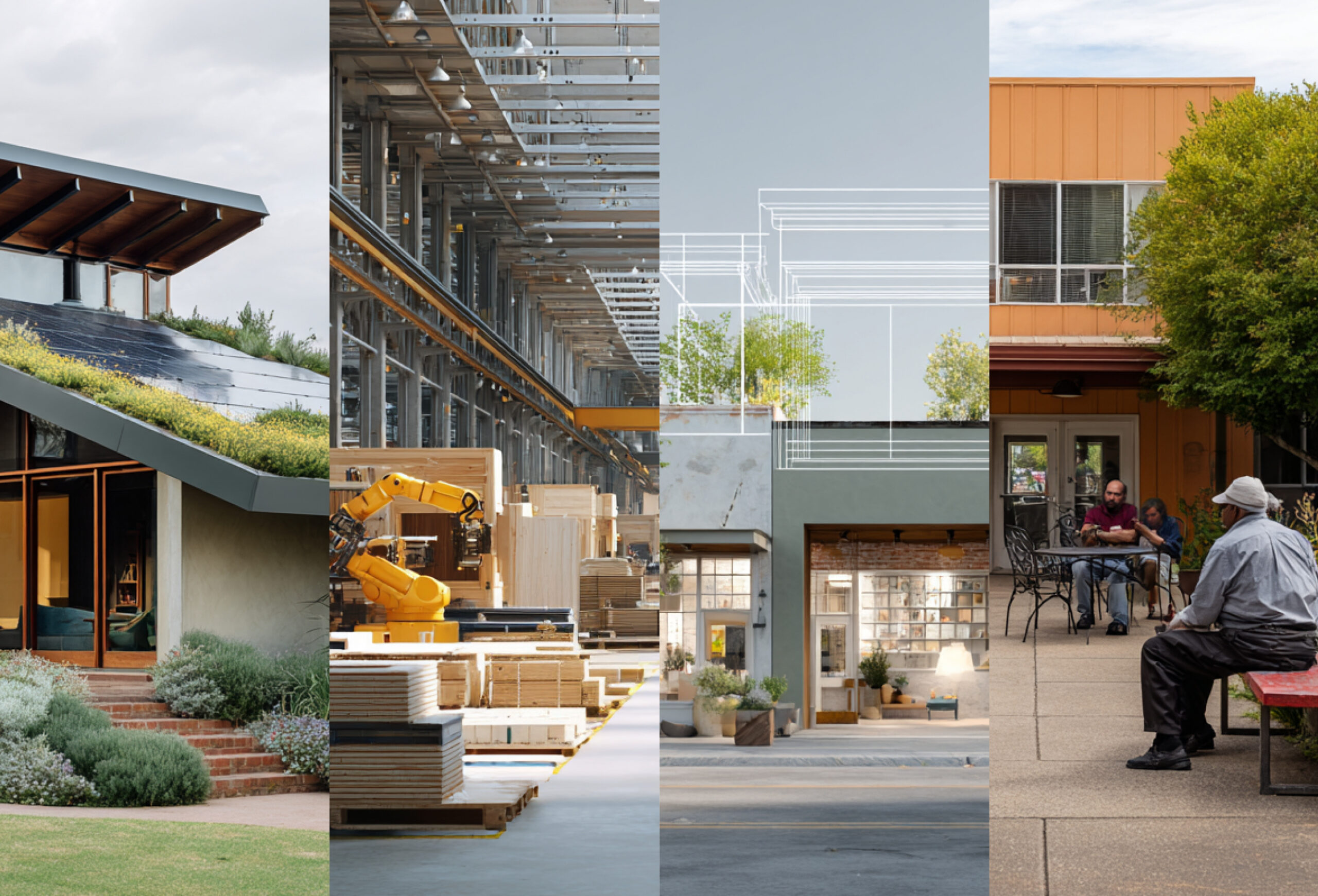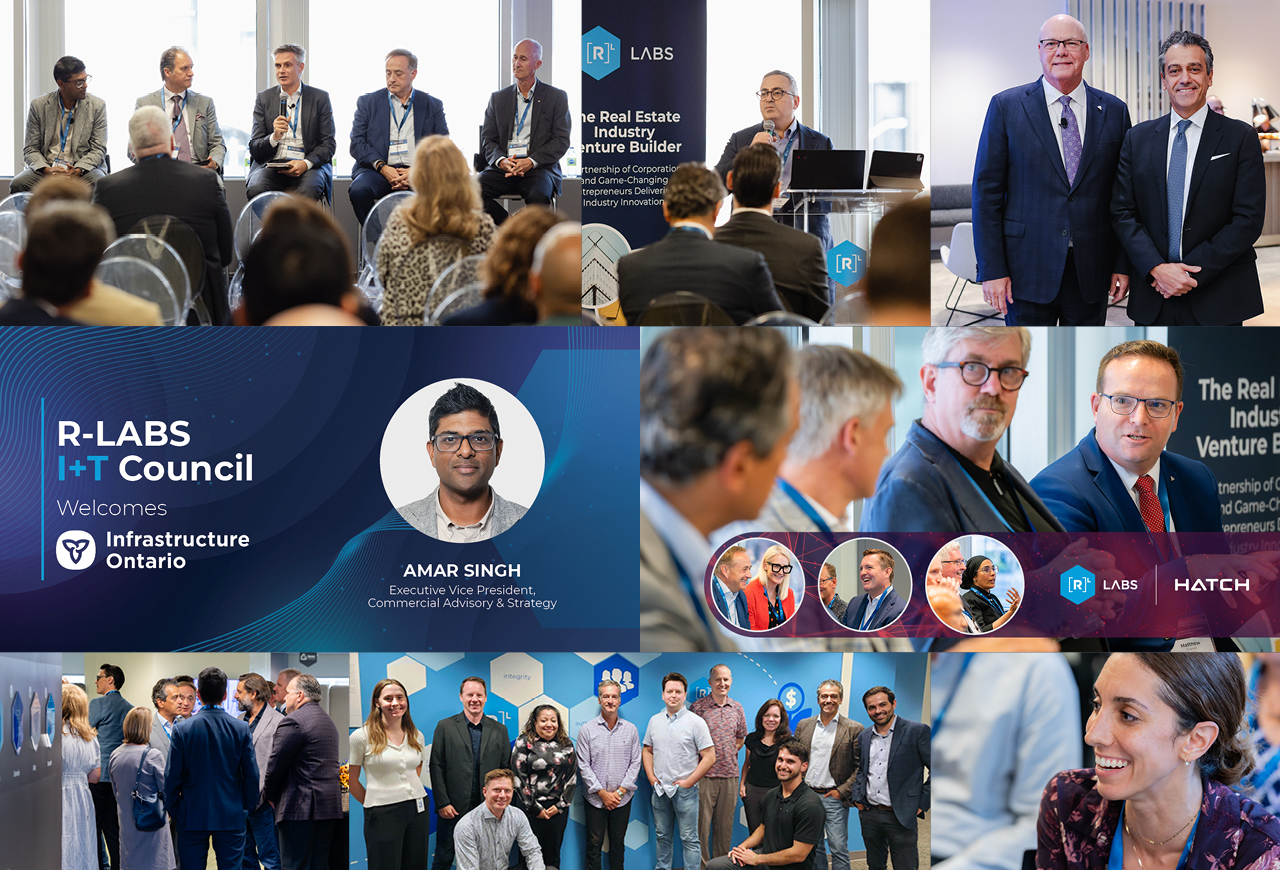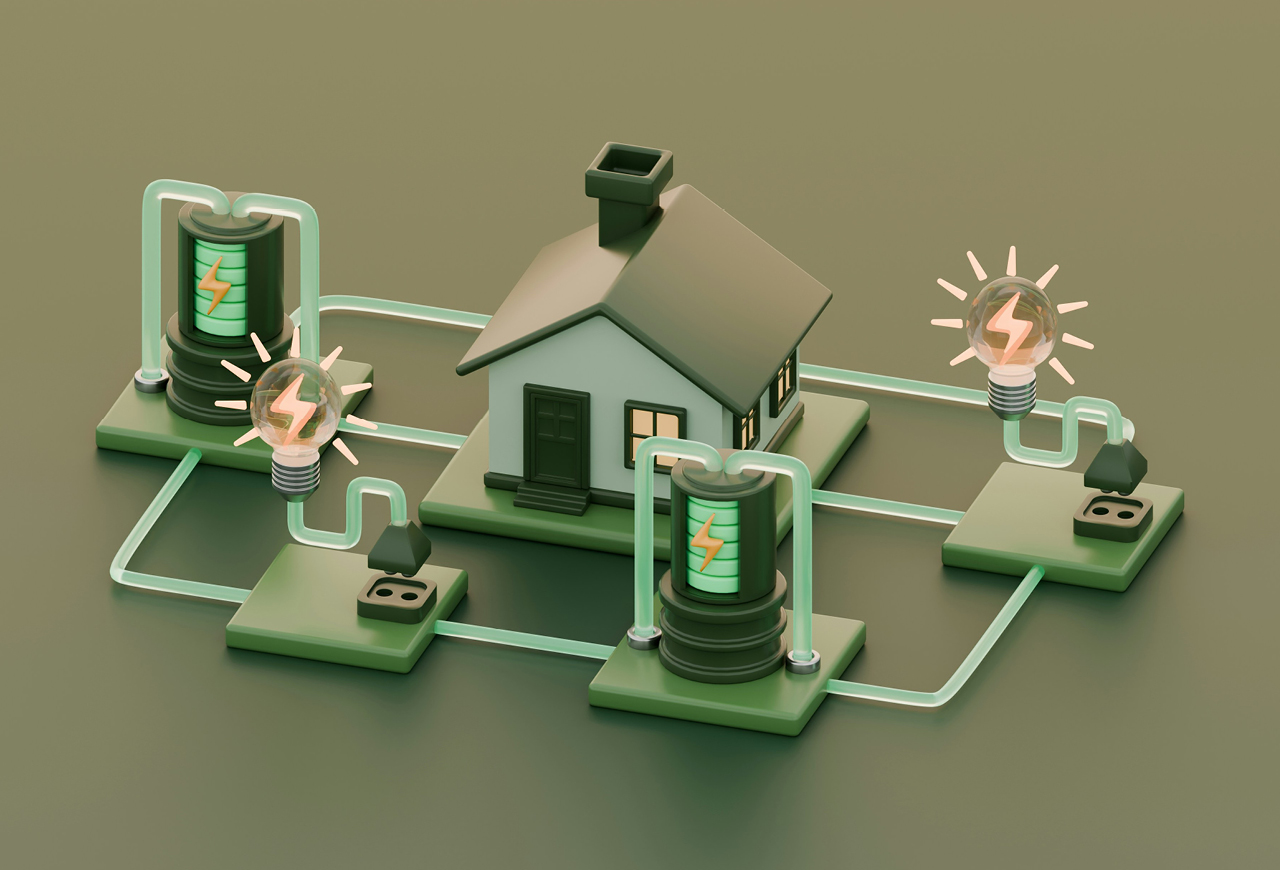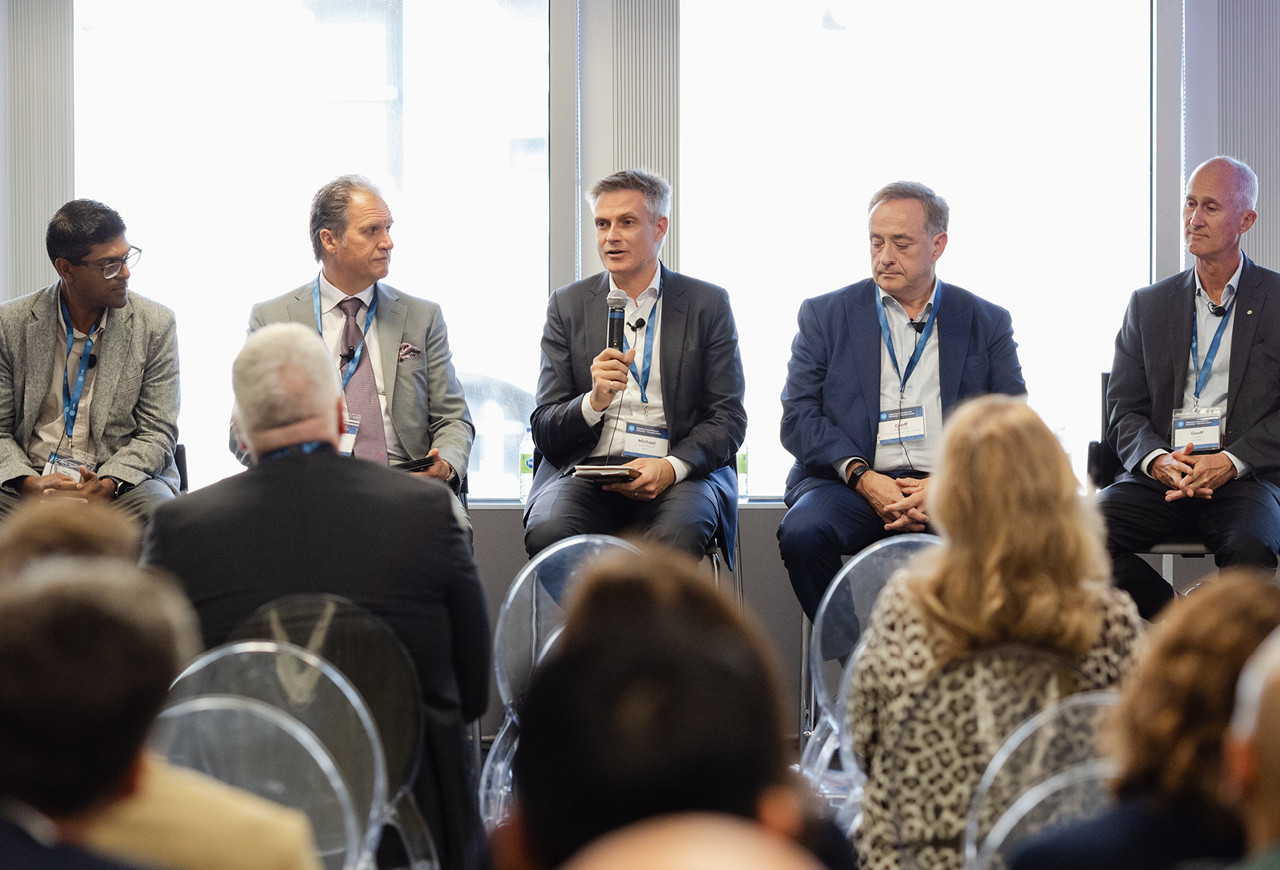From her role as the Director of Development at Urban Capital Property Group, Taya Cook has extensive experience leading new condominium projects in Toronto. Taya’s status as an industry expert has uniquely positioned her to create an all-female development team for the design and development of Reina Condos. Like R-LABS, Taya is exploring how diversity and out-of-the-box thinking can promote innovation and help grow our industry.
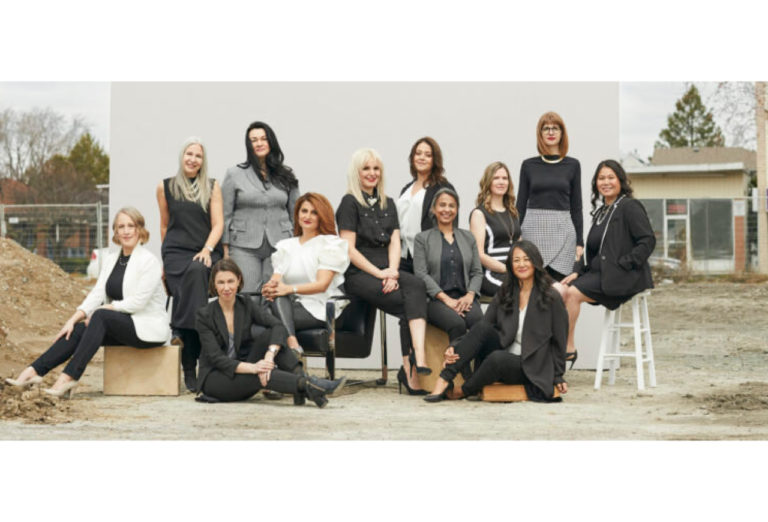
There are many aspects of real estate development that have shifted, but when it comes to the gender gap, change has been slow. The Reina Condos project was a response to an article that said, “Here are the people who are building their city: the kings of condos.” I hadn’t thought of doing a project like this, but it was quite striking when I saw everyone on the list was male. I thought to myself, “Give me an article full of men, and I’ll give you a project full of woman.”
We haven’t seen a condominium designed and developed by women and while we’re still in our early stages, we’re noticing that the dynamic is different. Not necessarily better, but certainly unique in the way we collaborate and approach different problems that arise. It’s been a very insightful experience with lessons that I believe will help us grow as an industry.
Understanding the Market
One area that we’ve excelled in has been listening to the public. In development, we don’t tend to take the time to step back and really listen to the people who are ultimately going to live in the building. There’s a lot of mouth service around it, but for the most part, you design a building, put it into the market and get the feedback after the fact. With the Reina Condos project, we’ve made a concerted effort to be proactive with input from our online questionnaires and design events. In July, we invited 175 people to come out and give their perspectives on condo development – what’s been done right, what’s been done wrong and what we can do better.
The response has been fantastic. From the questionnaire alone, we’ve received responses from hundreds of people, and it’s the highlight of my day. I love reading and circulating the good ideas with everyone on the team. We have a master spreadsheet where we collect the responses, and now, we’re stepping back as a team to think about what can we actually pull from this. There are some ideas that I’ve never seen in the market, and we’re excited about where our design will land based on this feedback.
Thoughtful Design
I think having a female perspective has helped us think about how spaces feel. On the development side, we’re very accustomed of looking at buildings in terms of plans, but on the Reina Condos project, we’re basing our designs on how people feel when they interact with space. For example, walking down a hallway can feel very different for men and women. When you go down the hall as a woman and all of a sudden there’s a jog in it, you have that innate feeling of, “Is there a security concern? Is there somebody hiding around the corner?” That feeling is hard to describe when you’re just looking at plans.
If you actually think of yourself living in this space, you understand that feeling. We all have little things we do to feel safe in our spaces, but we don’t take the time to discuss them. Listening to people has made us want to think about how can we design this space, so you don’t have negative feelings or reactions. Unless you’re having these conversations, these types of things can get missed in the design stage. It’s been an exciting and thoughtful experience to design spaces that support pleasant experiences in unassuming ways.
Building Homes
Another topic that came up in our event was the way condos feel to guests. When you go visit people in condos, many buildings make you feel like you’re visiting a prison or Fort Knox. It’s not clear how to contact someone, you’re trying to ring in, and you don’t know where the concierge is if you need help. It’s very different from your family coming to your home and you opening the front door. In a house, people might leave the door unlocked and tell their guests to come on in for dinner. Of course, we can’t have the building unlocked, but does it have to be so unwelcoming for people coming in?
As a team, we’ve started to think about how to improve the gust experience: can we create better signage? Can we have something that makes communication clearer? How do we change the assumption that everyone coming into the building as a resident? And most importantly, how do we improve the experience while keeping people safe? At the end of the day, our goal is to create space that will become somebody’s home – a safe and welcoming place that they’re proud to invite people into. Again, it all comes back to understanding the in-person experience.
An Inclusive Approach
We’ve seen a lot traction from women sharing our story, but on the flip side, we’ve also had a wealth of positive feedback from men in the industry – especially those who own companies or work in senior roles. Many of them have noticed the dynamic we have created and say quite openly, “You know what? We see this too, and we’re trying to engage more women where we work.” It shows that the messaging is getting across in the way that we intended. Our objective was never to make anyone feel excluded or attacked; it’s just about changing that conversation and showing some visible representation in the industry.
I don’t believe that the industry is intentionally male-dominated. Like many industries, I believe it just evolved that way – and that it’s time to make a shared effort to shift it. By attracting more women into the industry and recognizing those who are already in it, we can start to change the perception that real estate is an old boys club. I have sat in many meetings that were all men and me, but my male counterparts haven’t had to sit by themselves with 15 women. That’s a very different dynamic, and the fun thing about Reina is we’re showing people what that looks like. Once you feel it, you realize how interesting it is that we have taken the opposite perspective for granted as the status quo. With Reina, we want to invite people to see this difference, think about the board room experience that they are creating, and ask if it accurately reflects the people who ultimately will be living in the space. If it doesn’t, we encourage them to make an effort to change it.

